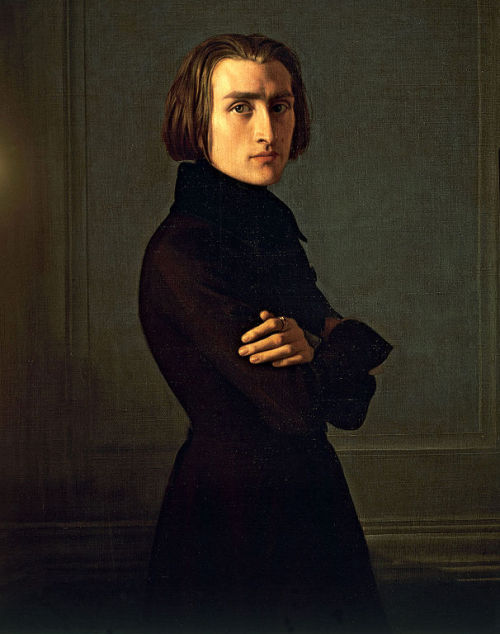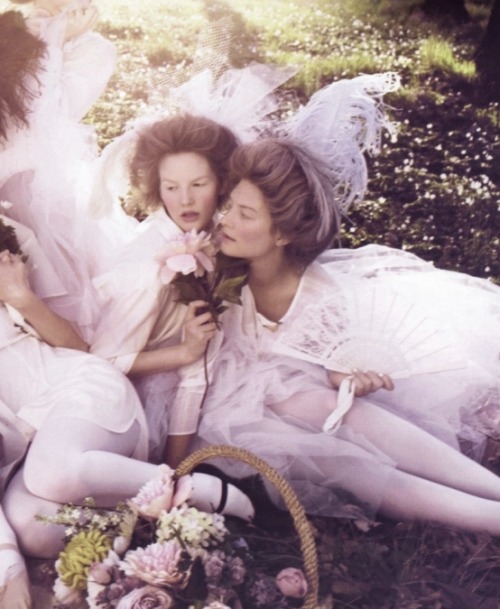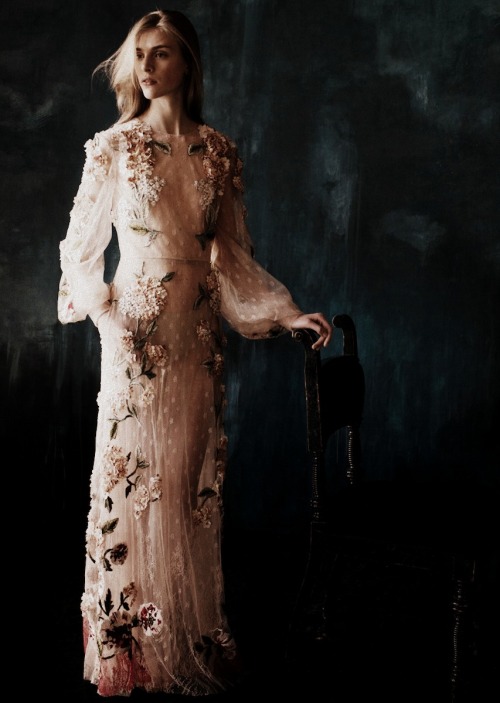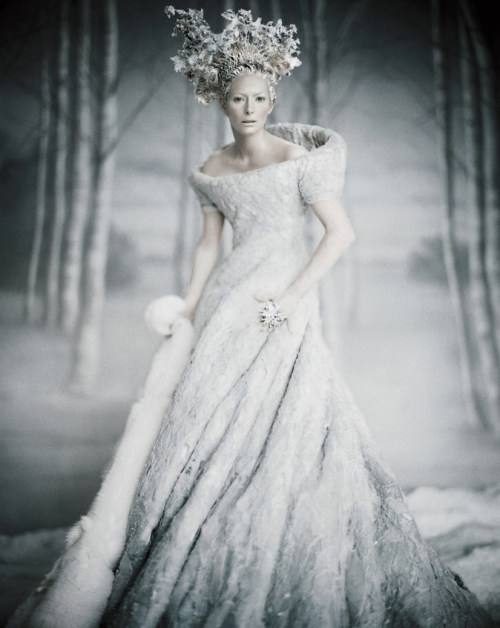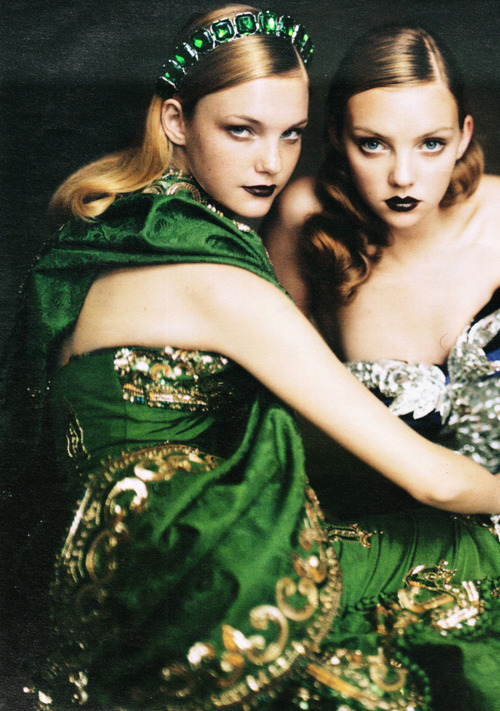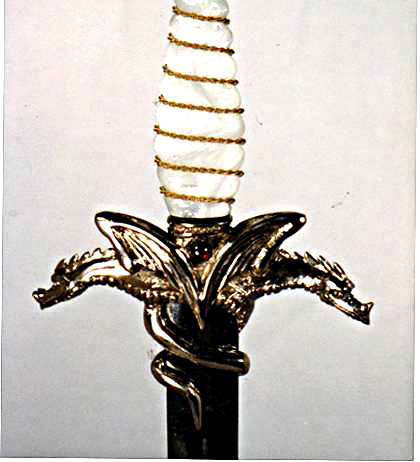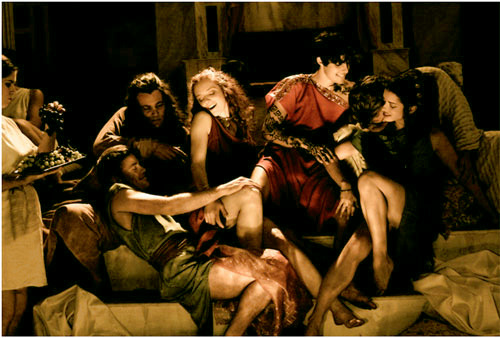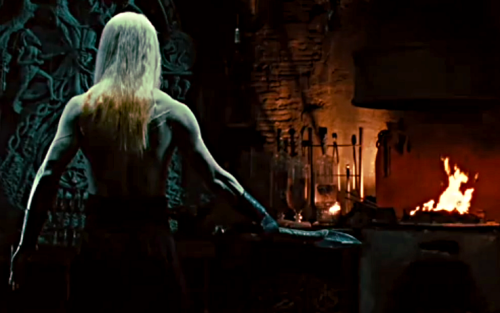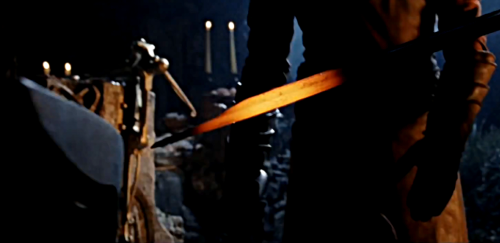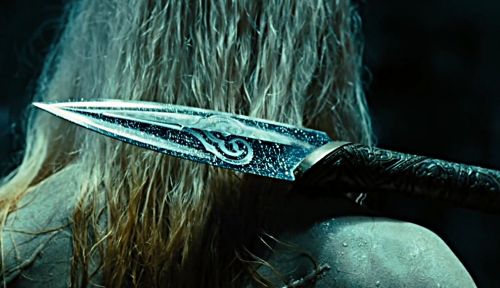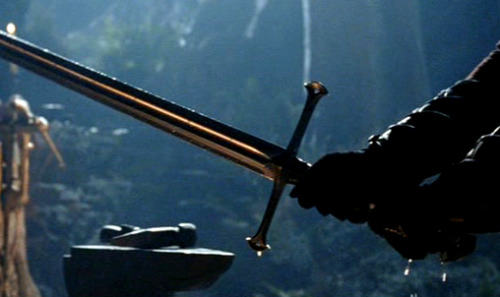#wizarding society
But it’s better to be called a being than a beast, isn’t it?
Remus laughs long and harsh at that one. It isn’t pleasant.
Firenze says, somewhat distantly, we have read the future in the stars and then falls silent.
Sanguini explains, a little.
They tell you it is an honour. You are a being. You can think. Bon. I did not know that, I needed a wizard to tell me that. You are excited, you celebrate. This is the beginning of something new, you think. No more hiding.
Then it starts. First, they ask you to sign here and sign there, so you sign, because why not? You are no animal - you can think as well as any wizard, you are a being just as them.
Then they ask you to give them your names. Instead of a name you get a number. You have to remember this, it is important. Then they smile at you and tell you are dangerousso you must report to them and let them know where you are. What you are doing. That too you do. It appears on your papers. You are a being. You show that to people, they turn pale, paler than the oldest vampire and they inch away - polite, but it is there. You show that to employers and they politely tell you that the job is taken. The wizard who goes in after you gets the job. You look at your papers and tell yourself, ah but I am a being, I can think. But it is not enough.
Then they look at your wands and look at you. You can smell the fear. They take those away too. For the good of society. But we can think and that is all that matters no?
You know what the highest cause of death among vampires is, Mr Scamander? Hmmm? Bounty hunters? Werewolf attacks? Wizards defending themselves? Wrong!
It is murder and suicide. That is what my people have fallen to. But we are beings, not beasts and that is something to be thankful for, si?
Post link
Dark arts, dark souls
Incest, revenge and dark magic in the Odeon’s new production of Electra and Orestes
LONDON, ENGLAND
THE STORY of Electra and Orestes is hardly one that needs embellishment to keep its audience awake through its five acts. A stomach-churning tale of revenge and honour, greed and vice and love in all its twisted forms, following the rise and fall of Orestes and his sister Electra as they plot to take the throne and avenge their father Agammemnon, Sophocles’ classic play makes even the raunchiest of our plays look tame by comparison. Indeed, classical scholars frequently complain that our modern stage tends towards censorship in its stagings of Electra and Orestes.
Aristochanus Marlowe’s adaptation of Electra and Orestes, then, should please those that criticize the bawdlerization of this play’s modern productions, with its unflinching approach to this bloody tale of revenge. In this adaptation, Electra and Orestes’ closeness to each other takes on a sinister turn, the incestuous undertones of the original text amplified in an impassioned monologue delivered by Orestes to his sister as they plot their revenge. Michael Blishwick’s Orestes is fierce and pathetic by turns as he wrestles with self-doubt and unsurety under the looming shadow of the throne; and the vile crime they are about to commit. But it is Camille Plautin who is the star of this show, in a memorable performance as Electra - strong-willed and proud yet frail, consumed by this need for revenge borne of what is later revealed to be an unhealthy bond to her father she persists in clinging to.
It is after Electra inveigles Orestes into pledging himself to revenge their father by any means, however, that we truly reach the heart of Marlowe’s adaptation. Fearing that they may be found out and executed, Electra makes Orestes promise that he will agree to do anything to keep himself alive. Once he has sworn this, in blood and with an Unbreakable Vow, Electra tells him that he must kill her and make a horcrux in which he may place half his soul. Orestes is naturally horrified and refuses. Ms Plautin’s Electra is at her very best here, raving and weeping, threatening and mocking, savage and tender, calling his love for her false until Orestes yields unwillingly. Maria Vyayetskaya is truly magnificent as Clytemenestra as she attempts to reason with her son, half-mad with grief and guilt and still covered in his sister’s blood. Nothing will stop Orestes however, and by the end of the play the stage is slick with blood and a body count that rivals that of Shakespeare’s Hamlet.
Critics will decry Marlowe’s decision to include a portrayal of the creation of a horcrux on stage for all the bad memories it will undoubtedly awake in the audience. There are some who might even go so far as to claim that it may give people ‘ideas’. The actual process barring Electra’s murder, however, is not shown directly on stage, but is hinted at indirectly through an intricately performed light and shadow play. Mr Marlowe himself believes that it is necessary for the public to face their fears and misgivings about horcruxes and other dark magic. As he puts it, it is in the dark that dark magic truly festers and not under the bright lights of the theatre stage.
There are those who may also lament the glamour that this particular adaptation of Electra and Orestes brings to the matter of revenge and revenge killings. Certainly neither Electra nor Orestes are punished or even chastened for their single-minded pursuit of this morally reprehensible goal. They have missed the point of this play. The answer lies in the odd glance, in cracked voices and in the harsh bright lights and the stark white sets, reminiscent of the wards at St Mungo’s, that Mr Marlowe has chosen for this production. The play meticulously picks at the inconsistencies and the emptiness of the tragic lives of these two siblings; venomous tentacula that grow sickly as the bright lights strip away the pretenses and the masks, leaving empty eyes and profound despair behind in a harsh and unforgiving landscape that mirrors the hollow emptiness of Electra and Orestes’ souls. Mr Marlowe gets to the heart of the tragedy of Electra and Orestes in this adaptation, looking beyond its bloody ending to pick apart their fractured souls. The Odeon’s latest offering truly does show us that dark souls fester in the dark and not in the harsh light of the stage.
Electra and Orestes is running at the Odeon theatre until February 8th.
From:The Wixenomist, November 17th - 23rd.
Post link
It was not as though she did not know what she was, or as though she was afraidof the petty prejudices of wizards.
But perhaps it was better to keep some things secret, purely for convenience’ sake, you understand. It was not as though she was so very different from them.
Sometimes, yes, she heard her girls whisper behind her back, looking at her askance. And sometimes, yes, some families would rather send their daughters elsewhere - else find tutors for them (tutors, ironically, she herself had taught). But in the end, they would always come to her, her girls, and ask her whether they ought to have damask or brocade robes, robes of silk or robes of tafetta - and she always knew, far better than those ri-di-cul-ousmagazine, which robes were en vogue.
So how could she be very different from them? She was one of them. She was not a violent, barbaric, barely intelligent creature. Madame Maxime simply kneweverything, therefore, normal. So how could they, the girls she had taught how to dress and how to walk, how to bow and how to deliver an insult just-so stand by and quietly let their headmistress be called barbaric?
Yes, there was method to her madness.
Behind every succesful Ministry man, after all, was a Beauxbatons witch.
(Madame Maxime requested by storylinecaroline)
Post link
From the top, left to right: Pleione Carrow and Flora Greengrass, on their wedding day, March 16th, 1950. Portrait of Flora Greengrass, 1975. Portrait of Pleione Carrow, 1979. Pleione Carrow and Flora Greengrass at a soiree, 1943.
No one was surprised when Flora Greengrass and Pleione Carrow chose to have their weddings on the same day, in the same venue.
Even in school at Hogwarts, the two could always be found with their heads together, sharing in some secret the rest of the world was not privy to. Upon graduating in 1945, they both took up jobs in the Department of International Magical Cooperation, working as secretaries to the department head and his deputy.
The rumours first started in the summer of 1948, when Flora Greengrass scandalized the wizarding world by turning down an eminently respectable offer of marriage from Titus Fawley. Titus Fawley was considered an excellent catch by all the matchmaking pureblood mamas, and Flora’s turning him down shocked even the most liberal-minded of them. Very soon the ballrooms of the wizarding elite were afire with whispers of an illicit relationship between Flora and Pleione and formidable dowagers tut-tutted openly at the Carrows and Greengrasses for having let their daughters run so wild. The source of the rumour is still disputed, but most accept privately that it was Titus Fawley, jealous of the closeness of the two, who first spread the rumour that Pleione and Flora were not merely friends, but were lovers.
Naturally, their parents could not be seen to be doing nothing about this breach of morals and respectability and began pressuring their daughters to find husbands for themselves.
Two years passed before the two were approached by Henry Mulciber, a fellow colleague at the Ministry of Magic (quite respectably betrothed to Dahlia Parkinson), who offered them a means out of their predicament. He had two friends, he said - naming no names - who were similarly situated and would understand the delicacies of their circumstances - unlike most other pureblood men their age. They would, he was sure, be able to reach an agreement that would be mutually satisfactory to both parties and keep their parents’ noses out of their private sex lives.
Intrigued, the girls agreed to meet with his two friends and were pleasantly surprised (and impressed) when both the gentlemen in question amicably discussed the terms of their marriage and did not impose upon them the behavioural strictures most pureblood men of the time would have imposed upon them.
Of course, both Pleione and Flora knew of the rumours about those two. Practically the entire wizarding world knew about those two.
In the spring of 1950, Pleione Carrow and Flora Greengrass married Antinous Lestrange and Charles Nott, under the strict proviso that both sides be allowed to continue their non-marital relationships with each other.
Thus it was that the Lestrange boys came to have not one father and one mother, but two fathers and two mothers. Perhaps it was the best for them, for their natural parents were aloof in nature while Charles and Flora were doting and fond adoptive parents, showering the boys with affection where their mother coolly reprimanded them for being rowdy and their father coldly demanded to know if this was how Lestranges behaved.
Yet all the affection in the world did not keep them from following in their fathers’ footsteps and becoming Death Eaters.
[Picture sources: ‘Let them Eat Cake’ by Jimmy Backius for Elle Sweden, August 2008, Tilda Swinton by Paolo Roversi for Vogue US December 2005,Hedvig Palm wearing Valentino Spring/Summer 2012 by Julia Hetta for Elle Sweden June 2012 andCaroline Trentini and Heather Marks, Ladies in Waiting W by Paolo Roversi October 2004.)
Post link
The Sacred Twenty Eight: the Noble and Most Ancient Houses of Mulciber, Rosier and Malfoy. (3/3)
The Malfoys, to their dismay, were not even deemed worthy of an insulting gift. Pretenders, the Mulcibers called them and blithely dismissed them as being generally unworthy of a gift. Their lineage was not old enough - even though they could trace their line back all the way to the Merovingian dynasty at least (more than several other families they could name) - and they had no dedicated family craft or magical art to speak of. That they had risen from obscurity and become one of the most powerful families in wizarding Britan seemed to matter very little to the Mulcibers. Parasites, said the Mulcibers, for the Malfoys thrived on the little games people in power played with each other and not on any magical skill of their own.
Worse still, the Malfoys were rather new when one compared them to the other families of the Sacred Twenty Eight. They could not trace their family line back all the way into legend as so many of the other families could - indeed they did not waste their time brooding over long family trees of dubious veracity. They did not claim divinity as the Lestranges did, nor did they claim to be descendants of famous and powerful sorcerers and sorceresses. No. They wore their badge of services rendered to William the Conqueror with pride - and wizarding society bought it for the most part. After all, not many could boast of having rendered services of a personal and delicate nature to the country’s monarchs.
The Mulcibers, however, proved to be a tiresome spanner in the works of the Malfoys’ carefully crafted story. Unspecified services to William the Conqueror were nothing to boast of, they said. Sailing with William the Conqueror was no great deed in itself. For all they knew, the Malfoys might have been William’s hangsmen - in fact it was quite likely, given the Malfoy family’s reticence on the matter of the nature of these services. Neither were services rendered to Her Majesty Queen Elizabeth the First of England enough to make the Malfoys worthy in their eyes. Politics, the Mulcibers believed, was a game anyone with a modicum of sense could play and was not enough to make the Malfoys exceptional in their eyes.
Thus it was that the Malfoys had to remain content with those artifacts they seized from wizards indebted to them - need we mention the Weasleys were among one of the unlucky families to have lost their prized heirlooms to the Malfoys (forever a sticking point between the two families)? - all the while aware that families like the Blacks and Lestranges were quietly snickering at them when their backs were turned. Aware and unable to do anything, for a gift is a gift and cannot be forced out of the giver. The snubbed Malfoys simply had to make do with a second rate (but nonetheless very beautiful) family sword. Not forged by the Mulcibers.
Some things, the Malfoys acknowledged, to their shame, could not be bought with money.
Post link
The Sacred Twenty Eight: The Noble and Most Ancient Houses of Mulciber, Rosier and Malfoy. (2/3)
Imagine the chagrin, then, of the Rosiers when their turn to receive a gift came round and they found themselves slighted by the choice of gift. Yet as the Mulcibers were quick to remind them in delicate terms, if it had not been for a favour they owed the Rosiers, the Mulcibers might have never chosen to give them anything at all. But since they were required, as a point of honour, to do so, they chose their gift very carefully indeed and made sure the Rosiers knew precisely what they thought of them.
A throne, they gave the Rosiers. To be precise, a crudely made throne of iron sheets, nailed together in the most rough fashion possible. It looked well enough - the Mulcibers could let their aesthetic sensibilities only be offended so far - but it was no crafty sword or delicate objet d'art. The message was quite clear. The Rosiers were extravagant, aye, but extravagance would never cover up their true nature - that is to say, a nature of the basest kind.
To add salt to the wound, the throne had no magical value at all. It was precisely what it seemed - an ordinary iron throne - and one that a Mulciber might have sold to a vain muggle nobleman for an exorbitant price. Of course, the Rosiers could not say a thing, for a gift is a gift and to shove it back in the Mulcibers’ faces when they had received it with such pomp and circumstance would come across as ungracious and boorish. Heaven help them, the Mulcibers already thought so poorly of them, it would hardly do to encourage the rest of the wizarding world to think of them in the same way.
So the Rosiers kept quiet and fumed quietly in their boots, cursing their ancestors for having had the misfortune to be imprudent, foolish and vain, and above all, for incurring the scorn of the Mulcibers.
Post link
Not every Black went to Slytherin. Not every Lestrange was a seccessionist. Not every Malfoy was a muggle-hater.
The Malfoys never talked about Nephilius Malfoy, Abraxas Malfoy’s younger brother, and one of the few Malfoys to have firmly fought for the rights of both Squibs and Muggleborns.
Of course, he had a nasty way of showing up precisely when they didn’t want him around.
The Blacks simply stripped the family disgraces of their names. Off the family tapestry they went and as far as they were concerned, were no longer Blacks, even if they pretendedto carry the name as both Sirius and Alphard did.
The Lestranges had the simplest method for dealing with those who failed to toe the family line.
The ghost of Dido Lestrange will tell you exactly how.
Post link
The Sacred Twenty Eight: The Noble and Most Ancient Houses of Mulciber, Rosier and Malfoy (1/3)
It is no mean feat to deliver a well-placed insult to one of the Pureblood families who make up that exclusive group known as the Sacred Twenty Eight.
To insult twoof these families and get away with it - well that takes extraordinary talent, particularly if the families concerned happen to be the Malfoys and the Rosiers. Both are proud families, rarely forgiving perceived slights against them.
Presumptious, the Mulcibers called them. They may have all sailed together with William the Conqueror, but the Mulcibers could tell you a thing or two about them. The Rosiers might be an old family, with a geneaology going all the way back to the early days of the Roman empire, but they were most assuredly Not Respectable. For one, they had boughttheir citizenship from Livia Augustus (the Mulcibers had earnedtheirs through extraordinary services rendered to the empire). For another, the Rosiers had always been involved in some scandal or the other - orgies, selling cases for pennies, plenty of by-blows, cheating at cards and all that sort of thing. Not at all the nobles they made themselves out to be.
The Malfoys, of course, were risible in their claim to greatness. The Rosier family, at least, was of note. The Malfoys were originally an obscure family, without renown at all, who won their lands in Wiltshire for services of a Most Delicate Nature rendered to the Conqueror. Services that almost certainly had nothing to do with prowess on the battle field or an ability to craft useful magical artifacts.
For that was the Mulcibers source of pride. They were an old, old family (old enough in lineage to rival even the Ollivanders who traced their line all the way back to the year 327 B.C.) of smiths , potioneers and alchemists whose metalworks were well known across the wizarding world even in the days when Rome was still a republic. Their fame was so widespread that even the muggles knew of the Mulcibers, but knew of them only as owners of excellent smithies with the best weaponry known to mankind. For wizards, however, the Mulcibers were far more than mere smiths (or even descendants of Vulcan as it may be) for to own an artifact forged by a Mulciber was the seal of highest approval, which stamped the wizard as one of truly great stock. One had arrivedwhen one was finally deemed worthy of having something crafted by a Mulciber.
Naturally, these artifacts were not lightly given to all and sundry. They could be purchased at a high price - but these were generally held to be of less value than those creations given as gifts to wizarding families. For each gift was made specifically for that family, drawing on what the Mulcibers thought of the family and how they thought they could aid them most. For the Lestranges, thrice-forged swords with runic inscriptions both for warding their wielders from harm and for killing effectively; for the Blacks, unmentionable artifacts (because of their highly dark nature, muttered their detractors); for the Notts, a distaff which spun pure gold wool; for the Prewetts, torcs which rendered them invulnerable to all but the darkest of dark curses; and so on and so forth. Even the Weasley family had once been given three daggers, which they had long since lost to various debtors.
A Mulciber-forged artefact was a badge to be worn, a trophy to be displayed. A sign of judgement and approval, more so than a list made by a crabbity old man.
Post link
Harry’s emotional spectrum ✨




















Hogsmeade village ✨


Day 5 : Lonely (edited)
You know… Before Hogwarts he always played at home alone (either playing with his feather friends or reading books…)

